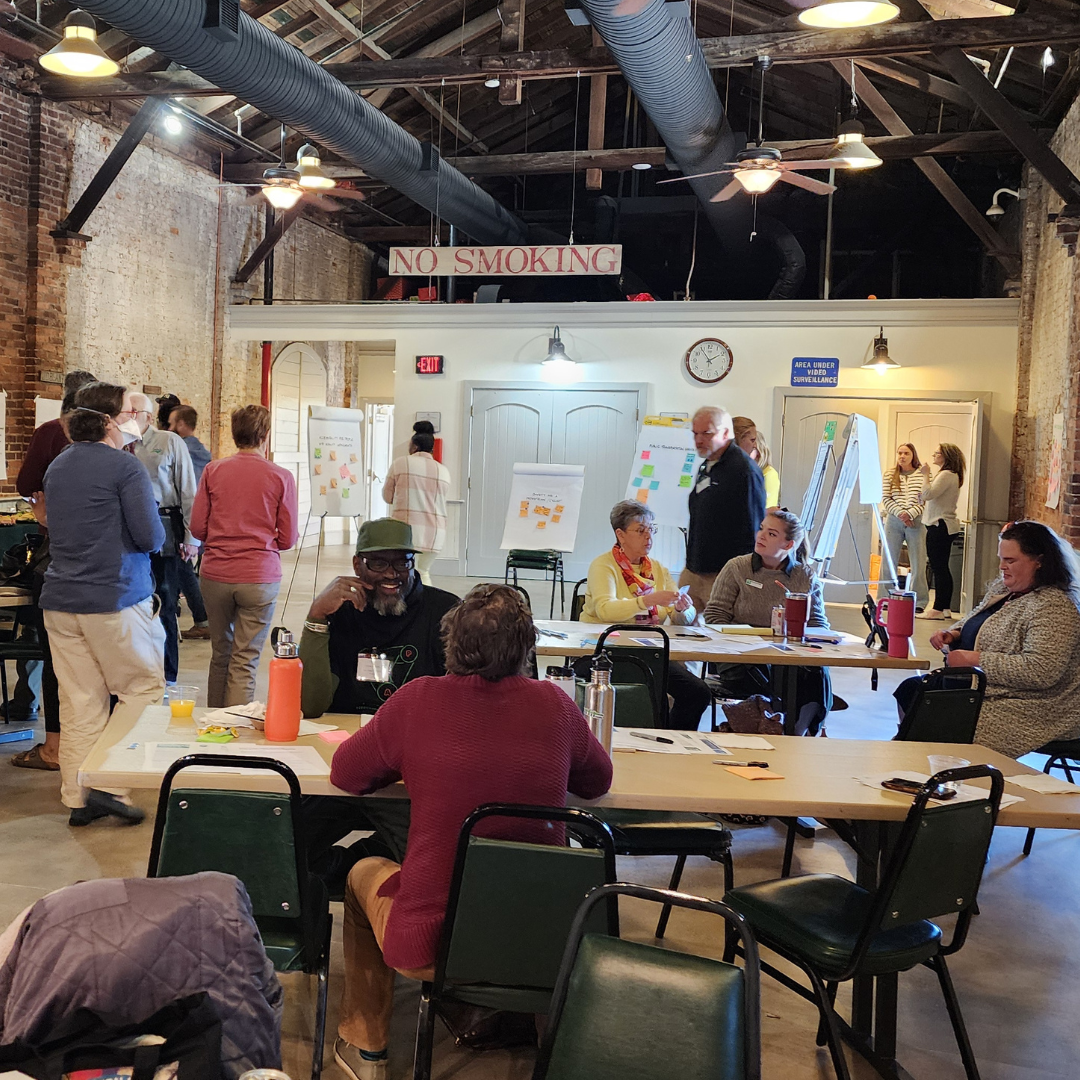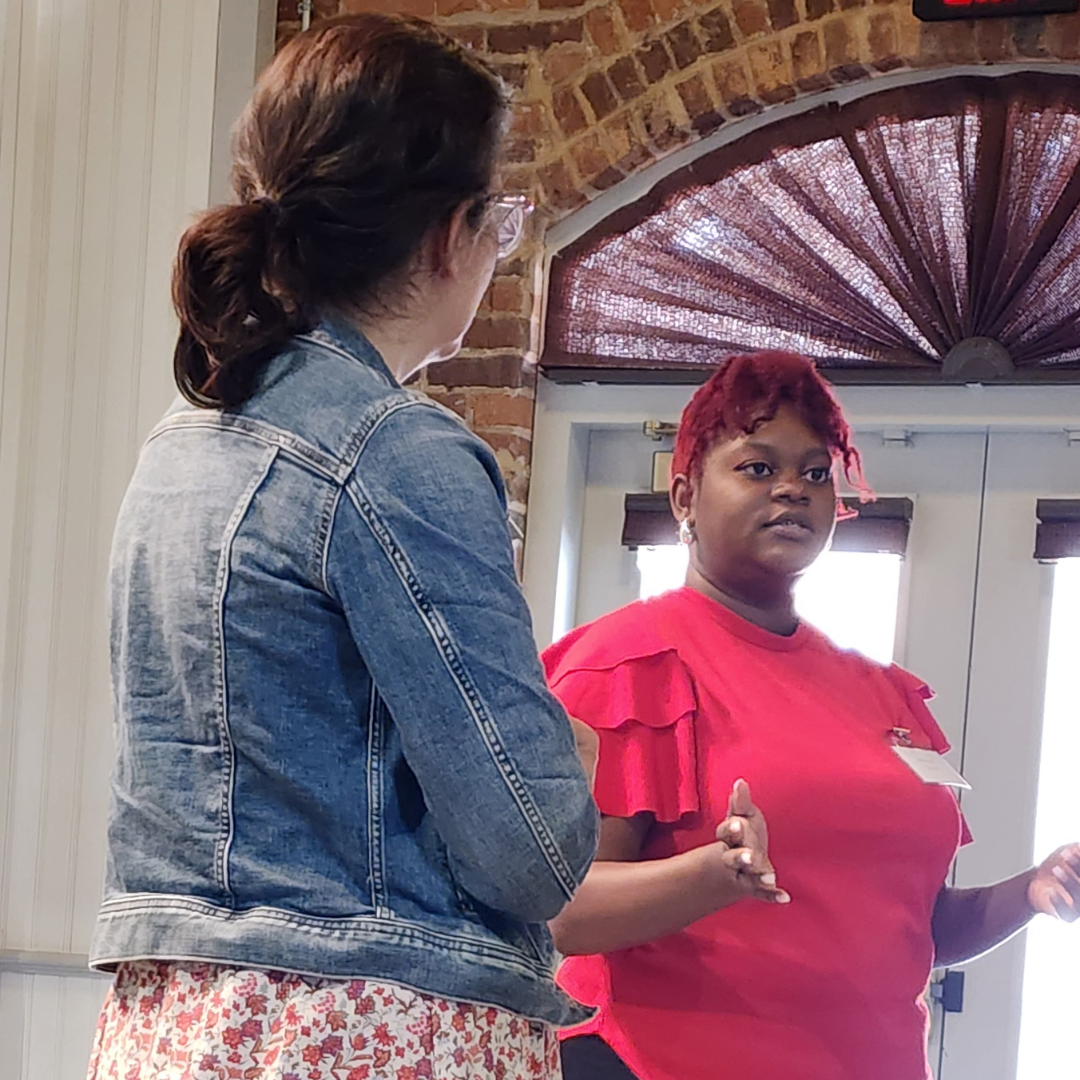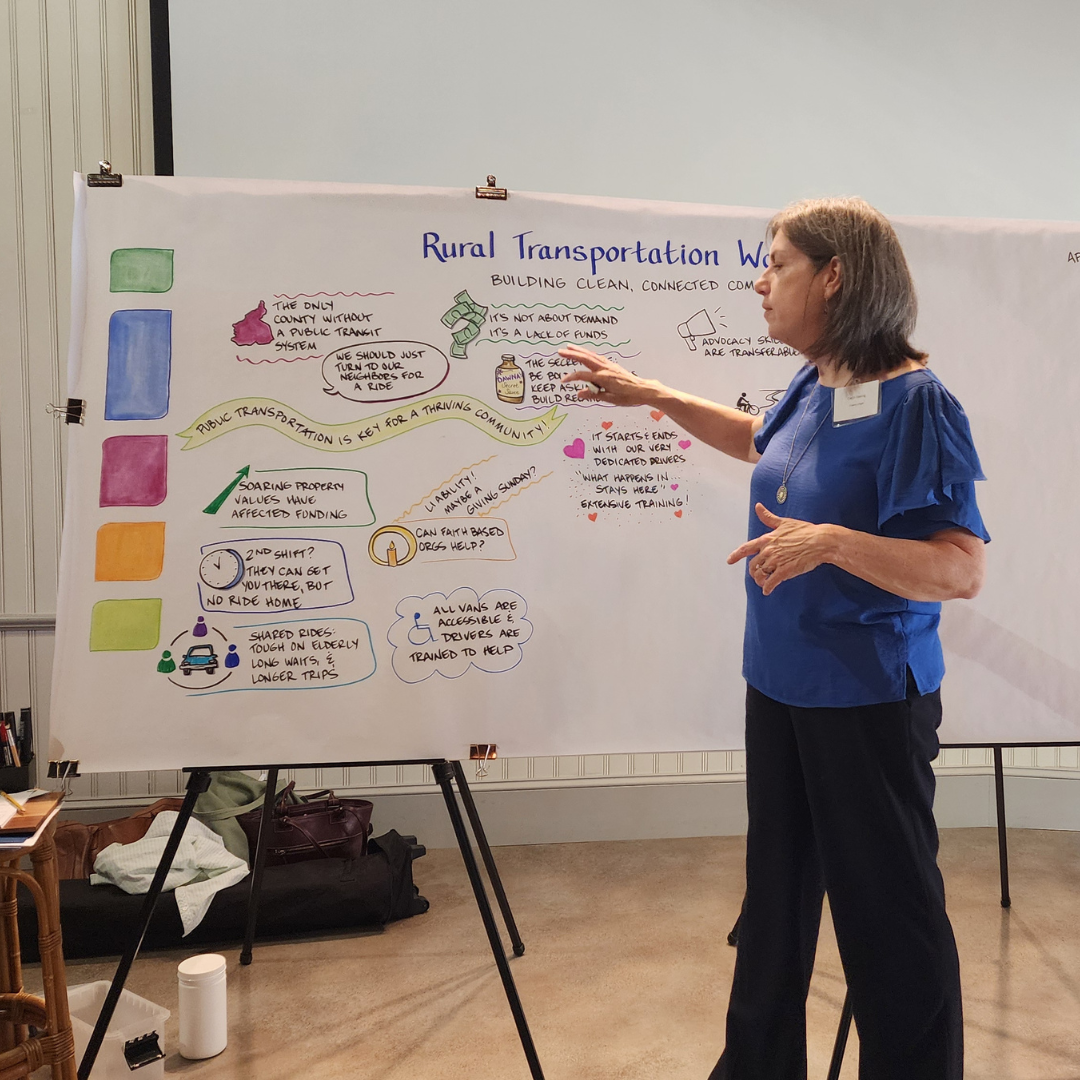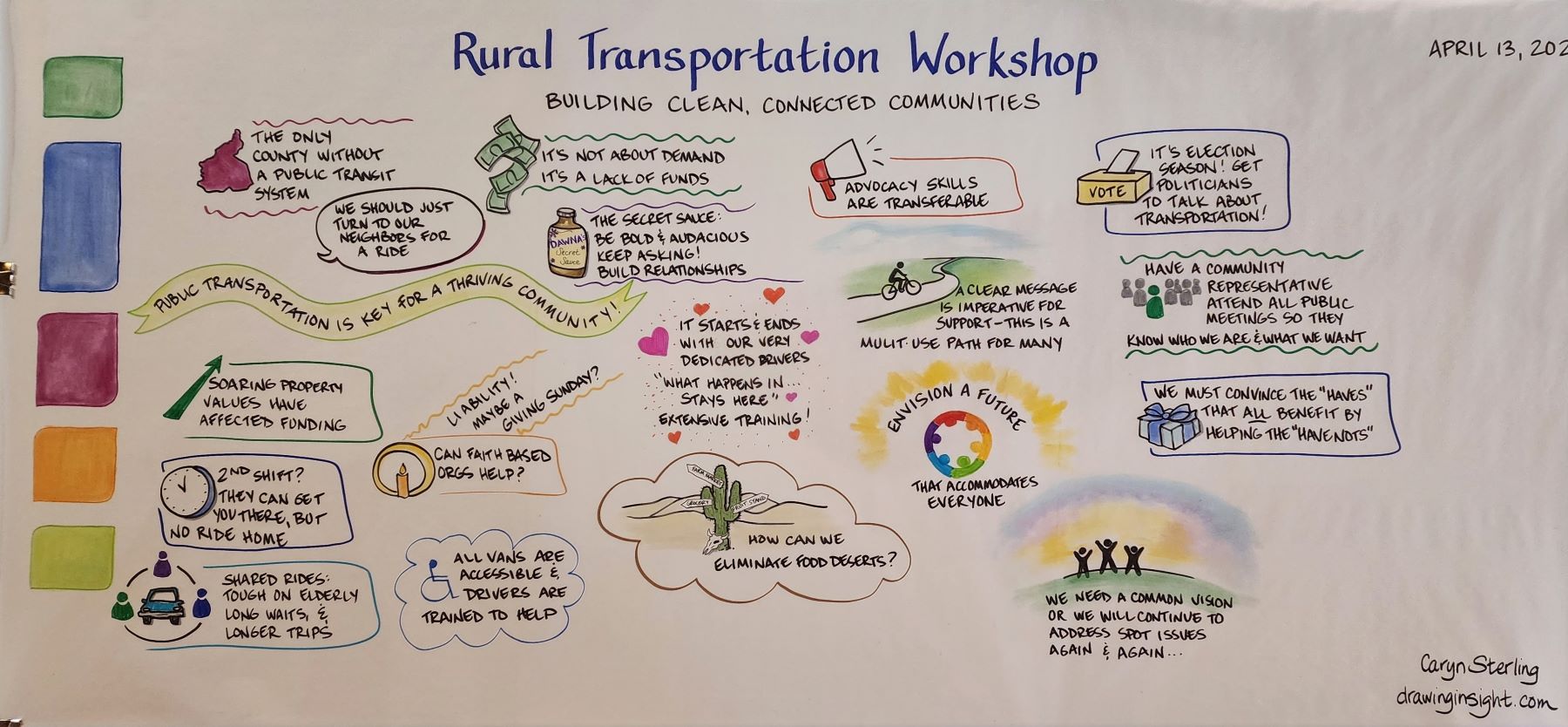When it comes to transportation issues, one size doesn’t fit all. Rural communities in North Carolina face unique challenges vastly different from their urban counterparts.
CleanAIRE NC is dedicated to tackling these disparities and finding solutions that promote cleaner air and reduced vehicle emissions in rural areas. Alongside our partners and community-based organizations, we’re meeting with residents to learn about local challenges with transportation and find solutions that promote cleaner air and greater mobility in rural areas.
Rural communities often struggle with limited access to public transportation, a lack of public infrastructure such as sidewalks, and long distances between essential services. This lack of mobility disproportionately affects residents of color, who may face additional barriers to car ownership.
These longstanding problems are often ignored. A misconception exists that rural communities are inherently self-sufficient and everyone owns a car. This overlooks residents who cannot afford a car, have disabilities, or are too young or old to drive.
Rural communities also fall victim to the “neighborly myth,” or the expectation that residents can simply rely on their neighbors for rides. This completely ignores the reality of unreliable options and the diverse needs of the community. Decision-makers unfamiliar with rural life might also underestimate the distances involved in running daily errands.
And rural areas often lack the concentrated political clout of urban centers. Without strong advocacy groups, rural transportation needs may not be prioritized on the legislative agenda.
These factors create a vicious cycle: lower attention leads to fewer resources, which in turn leads to fewer transportation options, further isolating residents and perpetuating the perception that rural communities don’t need robust transportation systems.
In April 2024, CleanAIRE NC held a listening session in Marion, NC, alongside our partners at the Southern Environmental Law Center (SELC), the Environmental Defense Fund (EDF), and the West Marion Inc. community group. We wanted to hear from residents from across McDowell County as they shared their transportation struggles.



The session highlighted several key concerns, along with potential solutions:
Residents reported a serious lack of access to public transportation options. Several people also emphasized the importance of keeping public transit in McDowell County fare-free.
While some services are offered to residents who need transportation to medical appointments, both seats and hours of operation are limited, making advanced planning a necessity. These are also restricted to medical appointments, ignoring the many needs of community members with mobility challenges. Ride-sharing services like Uber or Lyft that might otherwise fill this gap are either unreliable or nonexistent. Participants called for more drivers to be hired to allow for the expansion of supplementary transit services.
A lack of sidewalks and crosswalks on major roads puts pedestrians at risk. Residents pushed for public investments in infrastructural improvements that could address these issues, including building a footbridge in Marion, improving and expanding sidewalks and crosswalks, and exploring passenger rail options.
Time and again, participants at the listening session called for more meaningful engagement between policymakers and the community as a necessity for building momentum behind solutions. Several residents also highlighted opportunities to partner with faith-based communities to expand outreach and support.
CleanAIRE NC is now partnering with West Marion Inc. to plan out support for these community-led initiatives.

CleanAIRE NC, SELC, EDF, and our community partners are planning another listening session in eastern North Carolina (details to be confirmed) later this year. We want to hear from YOU!
Email CleanAIRE NC’s Environmental Justice Manager Z Strawderman at [email protected] if you’d like to see a session held in your rural area. And please share any specific transportation issues you’d like addressed.
Together, we can create a cleaner, more equitable transportation system that serves all North Carolinians, regardless of zip code.